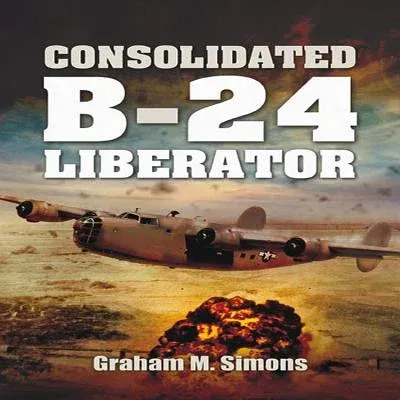The Consolidated B-24 Liberator was almost certainly the most versatile
Second World War Bomber. Apart from its bombing role in all theaters of
operation, the B-24 hauled fuel to France during the push towards
Germany, carried troops, fought U-boats in the Atlantic and, probably
most important of all, made a vital contribution towards winning the war
in the Pacific. Its most famous single exploit is possibly the raid on
the Ploesti oil fields in August 1943.
The B-24 ended World War Two as the most produced Allied heavy bomber in
history, and the most produced American military aircraft at over 18,000
units, thanks in large measure to Henry Ford and the harnessing of
American industry. It still holds the distinction as the most produced
American military aircraft. The B-24 was used by several Allied air
forces and navies, and by every branch of the American armed forces
during the war, attaining a distinguished war record with its operations
in the Western European, Pacific, Mediterranean and China-Burma-India
theaters.
This book focuses on the design, engineering, development and tactical
use of the many variants throughout the bomber's service life. The
overall result is, as David Lee, the former Deputy Director of the
Imperial War Museum at Duxford said upon reading the final manuscript,
to be acquainted with '...all you never knew about the B-24!'
The book is enlivened by the many dramatic photographs which feature,
and this coupled with the clarity of Simons' prose makes for an engaging
and entertaining history of this iconic Allied bomber, a key component
in several of their biggest victories and a marvel of military
engineering.

